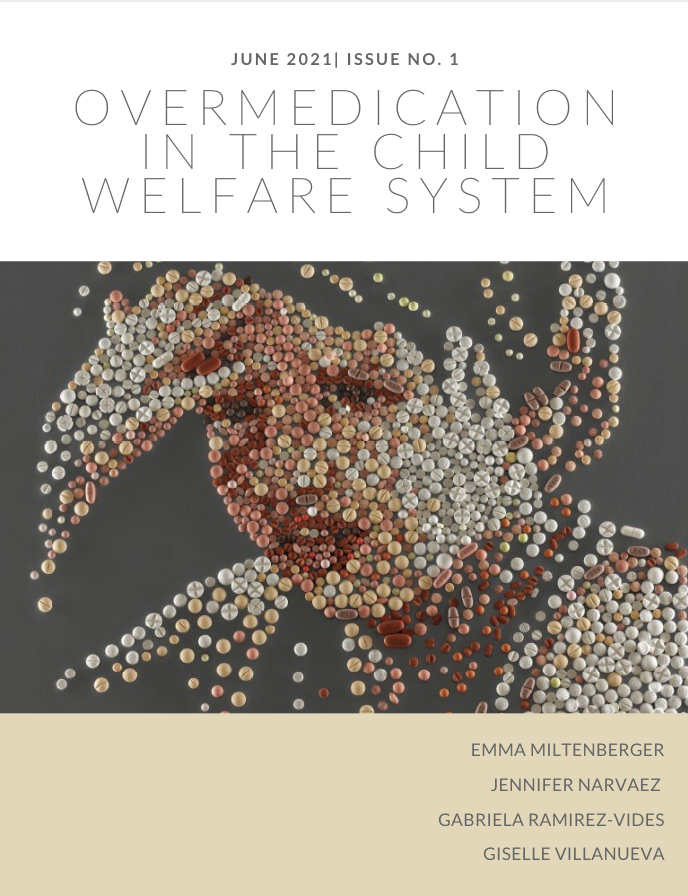Overmedication in the Child Welfare System

By: Emma Miltenberger, Jennifer Narvaez, Gabriela Ramirez-Vides, Giselle Villanueva
Children in foster care are medicated at a rate 4 times higher than the national average: This must change.
The issue of psychiatric overmedication within the foster care system is of grave significance. More than one in four children in foster care are prescribed at least one psychotropic drug: this rate is 4 times higher than the national average. Furthermore, a significant percentage of foster youth are taking more than one psychotropic drug at a time. And in some states, children in foster care are 50 times more likely to be taking more than 5 medications. This is not safe and this is not acceptable. We must not turn a blind eye and ignore the grave injustice that is occurring in the foster care system. The safety and long-term health effects associated with taking psychotropic drugs at such a young age have not been thoroughly investigated and their use has not been directly approved for this age group. Children in foster care are 9 times more likely to be prescribed a medication that does not have clear FDA approval for use in children. Yet, these medications continue to be prescribed in order to subdue and silence vulnerable foster children. Foster youth deserve safe, alternative forms of mental health care that will allow them to begin processing and healing from the trauma and stress they have endured. Through this magazine, we hope to raise awareness about this prevailing issue. Our aim is to comprehensively cover both the history and current state of this issue and to explain the complex societal and biological factors at play. The goal of our magazine is to gain support for this issue in hopes of fostering legal change and to advocate for non-medication-based treatments such as psychotherapy.
This is a really sophisticated presentation of a topic I really had no knowledge of before, and it has been amazing to see how you navigate through the different aspects of the politics of foster care, the physiology of antipsychotics, and the emotions associated with neglect and abuse. A hard topic made accessible through your hard work! – Prof Kelty
comments powered by Disqus